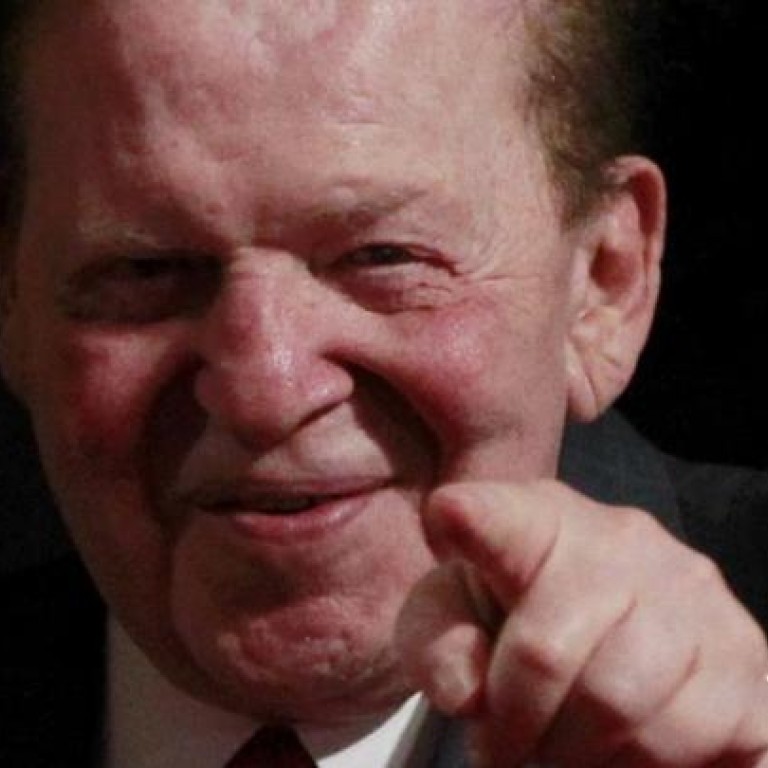
Mitt Romney's money men lick their wounds in wake of election
Despite spending hundreds of millions on the Republican cause, the best that big private donors could do was make the US election race tighter
At the private air terminal at Logan Airport in Boston early on Wednesday, men in unwrinkled suits sank into plush leather chairs as they waited to board Gulfstream jets, trading consolations over Mitt Romney's loss.

The biggest single donor in political history, casino billionaire Sheldon Adelson, mingled with other Romney backers at a post-elections breakfast, fresh off a large gamble gone bad: Of the eight candidates he supported with tens of millions of dollars in contributions to super PACs, none won on Tuesday.
As calls came in on Wednesday from some of the donors who had poured more than US$300 million into the pair of big-spending outside groups founded in part by Karl Rove - perhaps the leading political entrepreneur of the super PAC era - he offered them a grim upside: Without us, the race would not have been as close as it was. Super PACs are political action committees. The most expensive elections in history ended this week costing more than US$6 billion, propelled by legal and regulatory decisions that allowed wealthy donors to pour record amounts of cash into races around the country.
But while outside spending affected the elections in innumerable ways - reshaping the Republican presidential nominating contest, clogging the airwaves with unprecedented amounts of negative advertising and shoring up embattled Republican incumbents in the House - the prizes most sought by the emerging class of megadonors remained outside their grasp. President Barack Obama will remain in the White House, and the Democrats have strengthened their lock on the Senate.
The election's most lavishly self-financed candidate fared no better. Linda McMahon, a Connecticut Republican who is a former professional wrestling executive, spent close to US$100 million - nearly all of it her own money - on two races for the Senate, conceding defeat on Tuesday for the second time in three years.
"Money is a necessary condition for electoral success," said Bob Biersack, a senior fellow at the Centre for Responsive Politics, which tracks campaign spending. "But it's not sufficient, and it's never been."
Even by the flush standards of a campaign in which the two presidential candidates raised US$1 billion each, the scale of outside spending was staggering: More than US$1 billion all told, triple the amount spent in 2010.
The bulk of that outside money came from a relatively small group of wealthy donors, unleashed by the Supreme Court's Citizens United decision, which allowed unlimited contributions to super PACs. Harold Simmons, a Texas industrialist, gave US$26.9 million to super PACs backing Romney and Republican candidates for the Senate. Joe Ricketts, the owner of the Chicago Cubs, spent close to US$13 million on a super PAC attacking Obama over federal spending.
But rather than produce a major partisan imbalance, the money merely evened the playing field in many races.
Haley Barbour, a former Mississippi governor who helped Rove raise money for Republican causes, said that without co-ordinated anti-Obama advertising in the summer, the campaign would not have been as close.
"I believe that some of that money actually kept Romney from getting beat down by the carpet-bombing he underwent from the Obama forces," Barbour said. "I did look at it more as us trying to keep our candidates from getting swamped."
Advocates for tighter campaign financing rules argue that after Citizens United, candidates and officeholders on both sides of the aisle are far more beholden to wealthy individuals.
"Unlimited contributions and secret money in American politics have resulted in the past in scandal and the corruption of government decisions," said Fred Wertheimer, the president of Democracy 21, a watchdog group. "This will happen again in the future."

